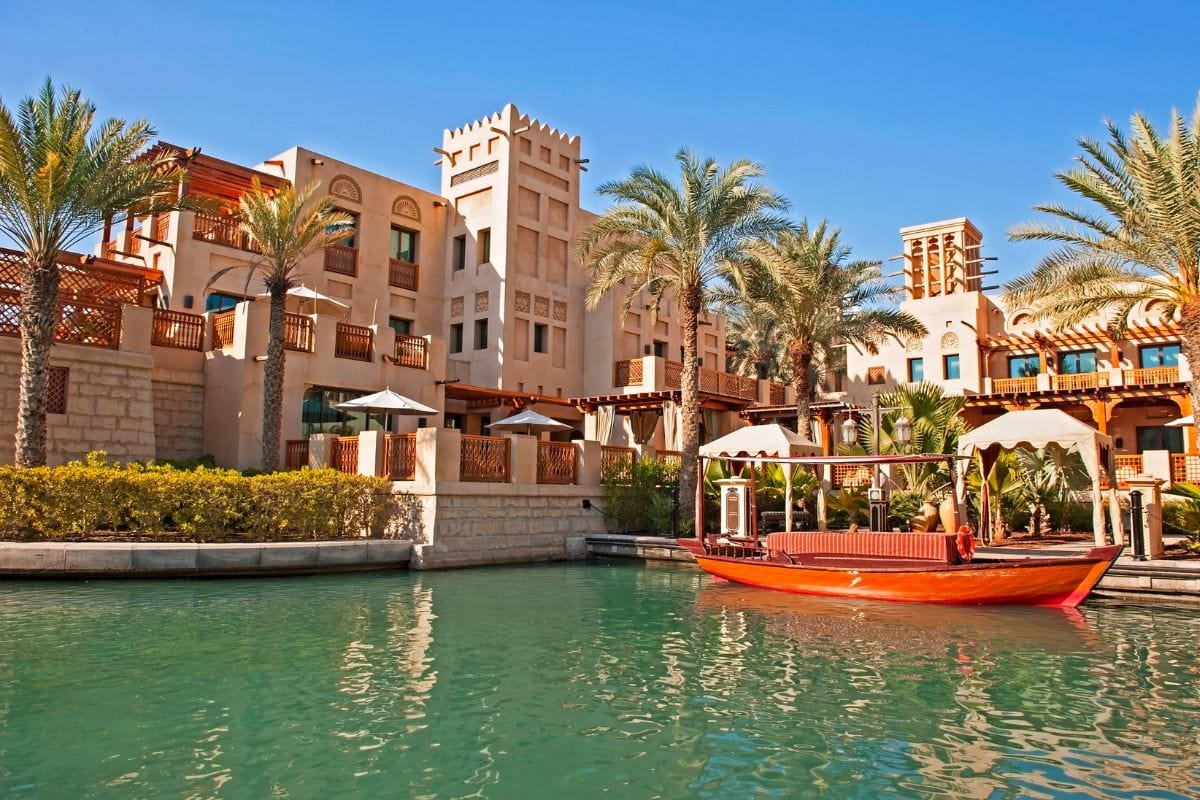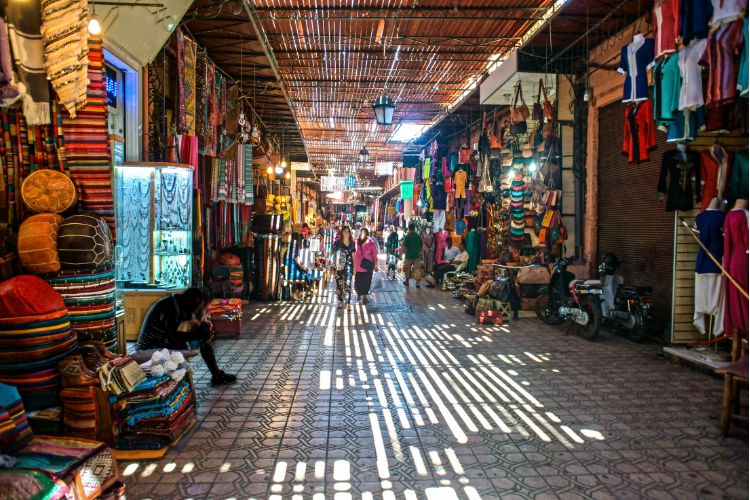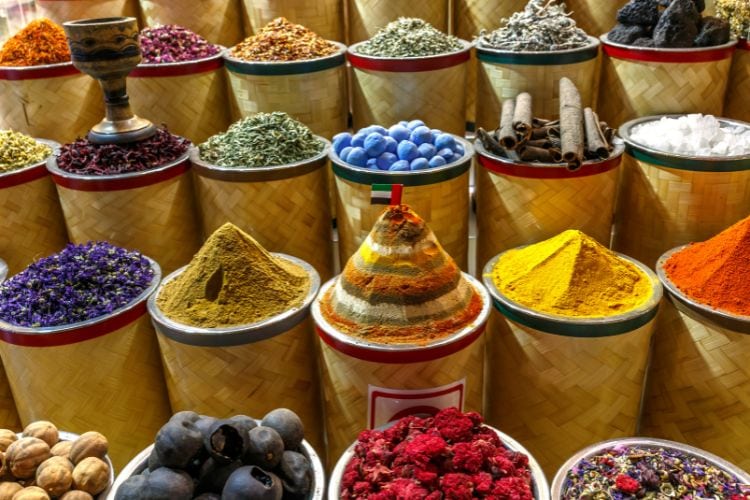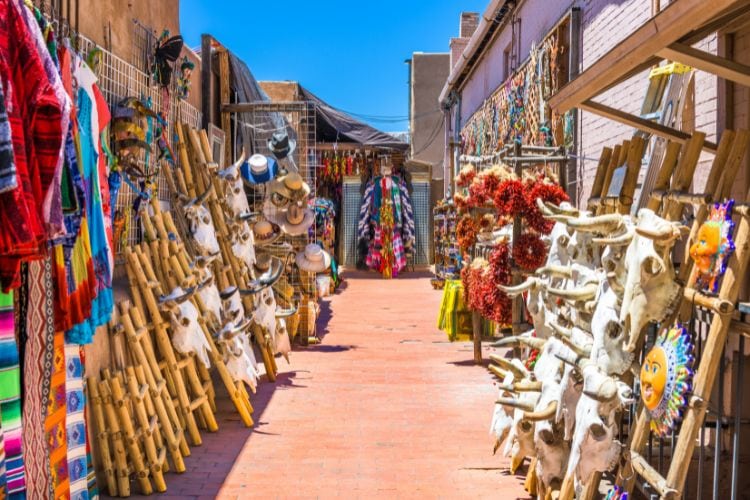
Go World Travel is reader-supported and may earn a commission from purchases made through links in this piece.
In many parts of the world — from Turkey’s bustling bazaars to Morocco’s souks to lively street markets in Asia, the Caribbean and South America — travelers are bound to find themselves haggling with locals. Also known as bargaining or negotiating, haggling is a back-and-forth discussion between a buyer and a seller to agree on a price.
Haggling isn’t just about getting a great deal. It is an experience that’s cultural, engaging, and fun. When you learn to haggle well, it’s like a game where everyone wins. The prizes are memories and a souvenir that will remind you of the experience.
For many Americans, for whom this isn’t a tradition, haggling can be daunting. Some people don’t know how to start. They assume that the exchange will be like dealing with a used car salesman. They worry about being taken advantage of or having to deal with unpleasant aggressiveness by the seller. Other people feel, “I have more money than they do, I’ll just pay what they’re asking.”

What is Haggling?
Erase those ideas. In places where haggling is a part of the culture, sellers expect people to negotiate prices. If you feel you want to help support the economy, don’t bargain quite as hard, but do haggle. If you don’t, you are depriving both you and the seller of a fun encounter.
Best Tips & Tools to Plan Your Trip
In Turkey, haggling is almost a national sport. When you step into a Turkish shop, you’re not just entering a store, you’re beginning a ritual.
My Haggling Experiences

Haggling in Turkey
Once, passing through the grand bazaar in Istanbul, I saw unusual and lovely silver boxes on display. The owner beckoned me in and before I’d even looked around, he offered me a cup of sweet apple tea. Nodding my agreement, he sent his assistant to fetch tea and biscuits. This hospitality is not to be rushed; it’s part of the tradition.
I started to look around, asking questions about the items on display. Where had they been made and when? Which were traditional designs? How long did it take to make them?
While we sipped tea from delicate glass cups, he took time to explain how, where and why the objects were created. He demonstrated some of the techniques. Then came the big question for me, which ones did I like? We were about to settle into some serious haggling.
Book a 4-Hour Turkish Shopping Experience Tour in Istanbul
Nonchalantly, I pointed to several items that were appealing but didn’t indicate which one I liked best. An hour and another cup of tea later, he told me about his plans to visit relatives in Detroit. All the while, he flirted and joked as we bantered over the price of a few different boxes.
Eventually, we came to an amount we agreed was fair, and I came away with two intricate engraved silver boxes. His assistant polished them, then carefully wrapped them and placed them into a buttery soft cloth carrying bag.
When I exited, the seller gave me a hug. We both enjoyed our afternoon. It’s important to always keep in mind that haggling isn’t about winning; it’s about participating in the ritual.
Read More: 10 Reasons to Visit Istanbul, Turkey

Haggling in Morocco
This is just one of countless examples I’ve collected over my five decades of traveling to over 95 countries, many of them numerous times.
In Fes, Morocco, I spent an hour intermittently bargaining and chatting with a jewelry shopkeeper named Ahmed. He sat me down on a tooled-leather hassock and brought me one cup after another of mint tea so sweet it made my teeth ache.
Book a 3-Hour Colorful Souks Tour in Marrakech
He complimented my blue eyes, commenting on how one necklace he showed me matched them, and would attract every man I met. After a long stretch pretending to be shocked at the prices he quoted, and offering lowball figures that shocked him in return, we had agreed on a number. I paid several dollars, plus after fetching a new outfit at my hotel, I would give him the blue knit shirt I was wearing for his wife.
I’ve learned that you don’t need to be fluent, but a few phrases in the local language can make haggling more engaging.
Read More: Morocco Travel Guide: Frequently Asked Questions About Travel in Morocco

Haggling in Mexico
In Mexico, a simple “Cuánto cuesta?” (How much does it cost?) or “Puedes hacerme un descuento?” (Can you give me a discount?) has produced smiles and an interest in working with me. A small calculator is helpful to show the seller the price you’re offering.
In Taxco, a city renowned for silver, the first shop I entered had spectacular jewelry. I suspected the rings and earrings were out of my price range.
When I asked the price for a simple ring, my suspicions were confirmed. Rather than engage in bargaining, I said a respectful “gracias,” and left. The jewelry in the next shop was nice, but nothing really caught my eye. Again, I said “gracias,” and left.
Bargaining, if you know you are unlikely to buy anything, is considered rude. Understanding what’s socially acceptable — and is not — is an important part of making haggling a good cultural experience. So is knowing when to walk away.
Book your stay in Taxco, Mexico here
A Few Tips on Haggling:
- Know a bit about the local pricing of the items you’re interested in. You can do this by doing some casual shopping before you settle into a negotiation.
- Make sure you allot enough time to shop and haggle at a leisurely pace.
- The starting price is always high, and unrealistic. It would shock the seller to actually receive it. To begin the bargaining process, offer the seller one-third of their beginning amount. Sellers know that isn’t realistic on your part. The true price lies somewhere in the middle.
- While haggling is fun, it’s also a serious business for the seller. Don’t engage unless you are ready to purchase. If you are just asking to learn about local pricing, tell them you are just looking and not planning to buy at the moment.
- Before you go into a shop, think about how much you are willing to spend. Set that as an upper limit and stick to it.
- Leave enough time to negotiate. A friend who bought an expensive rug in Turkey told me she haggled for six hours. You wouldn’t spend that much time buying an inexpensive item, but for a major purchase, it will probably take many cups of tea and a lot of time.
- Once you’ve agreed on a price, never go back on it. That is considered disrespectful.
- Most of all, have fun.
Read More:
Author Bio: Karen Gershowitz has been traveling solo since age seventeen, when she flew to Europe and didn’t return to the US for three years. In her career as a marketing strategist and researcher she traveled the world conducting thousands of meetings, focus groups and interviews. When traveling for pleasure, those same skills helped her to draw out people’s stories. She learned about their lives, as well as local customs and fashions and what makes them laugh. Her first book of travel stories, Travel Mania, explores the confluence of travel and life events and how travel has changed her beliefs and life direction. Her new book, Wanderlust: Extraordinary People, Quirky Places and Curious Cuisine continues those stories, addressing issues readers have asked to hear more about—memorable food, people, and places she experienced in her travels. She hopes these stories tickle the travel bug in readers and set them off on their own adventures. Karen lives in New York City.
- Travel Guide to Colorado - April 26, 2024
- Travel Guide to Croatia - April 26, 2024
- Top 10 Things to Do in Ireland - April 25, 2024


